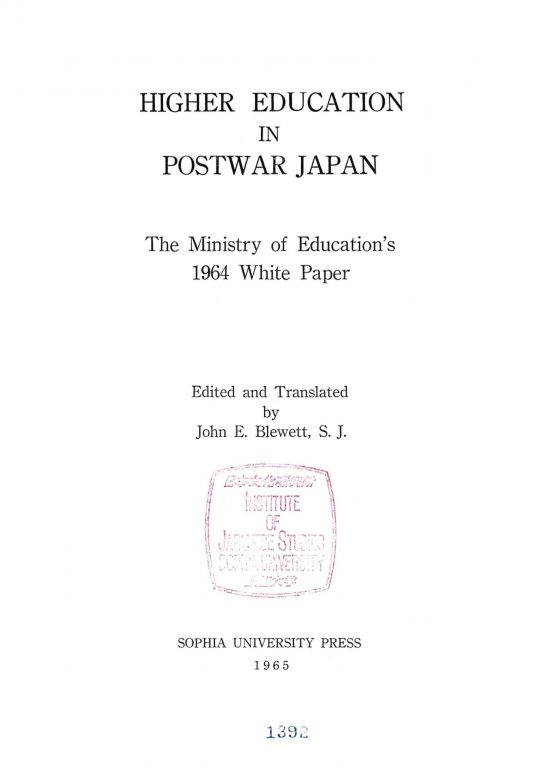Higher Education in Postwar Japan: The Ministry of Education’s 1964 White PaperEdited by John E. Blewett
Translated by John E. Blewett
Monographs (1965) pp. 1–191
On April 1, 1965 a special commission, appointed by the Ministry of Education in October, 1963 to review the present status of higher education in Japan and to advise on ways of improvement, submitted a bulky report on its findings. The commission addressed itself principally to two major topics: the purpose and nature of a university; its establishment and organization. A prefatory statement to the report advises the reader that the commission and its sub-sections met over 200 times to tussle with the problems faced by new-system universities as they try ever more faithfully to realize the grand aim of somehow bringing academic and professional education into closer relationship with the liberal and humanistic formation needed for the development of responsible and mature citizens. The report, for better or worse, does not belong to that class of laboriously written documents destined to languish unread in the cluttered drawers of minor bureaucrats. Barring some unforeseen violent opposition from unsympathetic quarters, its recommendations will in all likelihood become law of the land by March, 1967. Technically speaking the recommendations of the report affect only those institutions of higher education which will be founded after March, 1967 insofar as they will have to meet the requirements for a charter stipulated therein. Actually, however, all existing institutions of higher education will be expected to conform as far as possible to the revised requirements.
1965. 191 pages.
Paperback. [Out of print]
